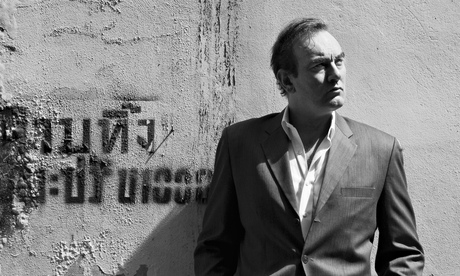
Set over a few days in Morocco, this is the story of a London couple heading, rather reluctantly and fractiously, to a huge, three-day party in the desert, given by a gay couple annually at their lavishly renovated estate. Driving through the night, rather late, David and Jo Henninger – the couple – are arguing. David has had a few drinks too many. When two Moroccan boys step into the road, probably bent on hijacking, ostensibly selling fossils, A befuddled David runs into, and kills, one of them. The other makes a run for it. David and Jo load the body into the car and set off towards the party.
There are distinct elements of The Great Gatsby in this book: extravagant parties, careless people, marital discord. Osborne has a keen eye for these kinds of social occasion. The arrival of a corpse in the back of a hire car throws the servants and hosts Dally and Richard into turmoil. They quickly have the body removed to the garage so as not to ruin the party by a corpse; after all, acquaintances have assembled from around the world. Inevitably the news gets out. The hosts take charge and summon the police who are conciliatory. The relatives of the dead boy, it soon turns out, are less so. They are due to arrive the following day.
Osborne deploys his considerable talents in creating a febrile and frightening scenario: the lavish food and drinks, the cocaine snorting, the nude swimming, and this decadence is weighed subtly against the reaction of the local Moroccans, who both envy and despise the insouciant westerners. Hamid, the major-domo, who decants the expensive infidel wines, supervises the picnics, the fireworks, and the endless supply of ice cream, champagne and kif, is a wonderfully well drawn character. He understands well both of the worlds in which he lives, andis particularly anxious about the body stored for the arrival of the family. And he has a deep loathing of the western values. This clash of values is the lesser motif of this fine book.
At the centre of this macabre story are Jo and David. David is a society doctor in Chelsea who has lost a malpractice suit recently; he is also losing his patients, perhaps because he is also an alcoholic. Jo understands him, and admires some aspects of his life, but is beginning to loathe him as he becomes more headstrong and dangerous. He is a man of about 50 with public-school views of the world, but – and this is the skill of the author – he is far from a caricature; he is a very plausible character who believes that the late 19th and early 20th centuries were superior to most things in the 21st. At one point when his wife suggests that drinking in front of the servants at this time might be offensive, he says: "I don't care about offending them. I am an infidel, I am allowed to drink."
The family of the dead man ask that he travel to some remote outpost on the edge of the Sahara to attend the burial and to make atonement. Richard and Dally are keen to get on with the party, and so give him bland assurances of how straightforward it will all be. Jo wants to go with him, but David won't allow it. In the course of a long and boozy night she finds that her life has changed.
It would be criminal to give away any more of the plot. Occasionally, Osborne's prose has a tendency to overreach itself, but the story is utterly compelling; at the risk of trotting out a cliche, I couldn't put the book down.

